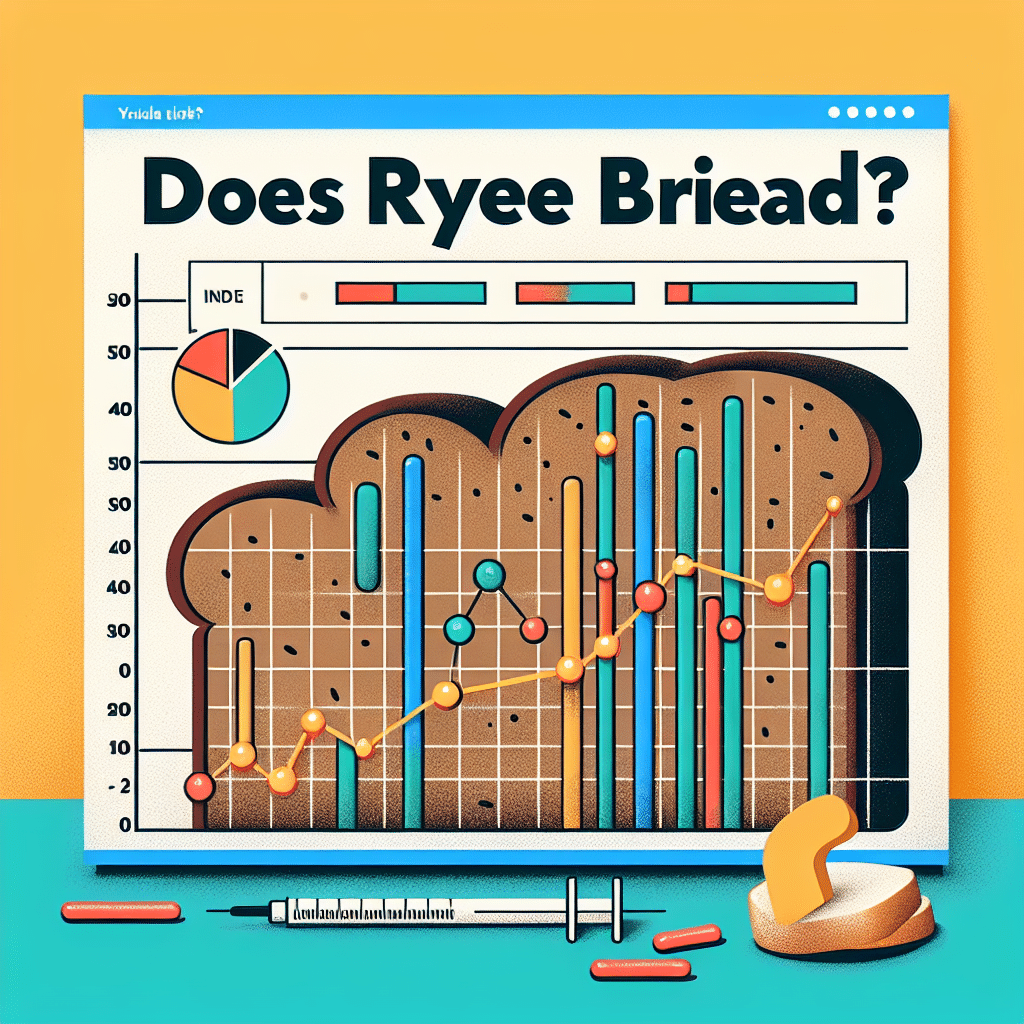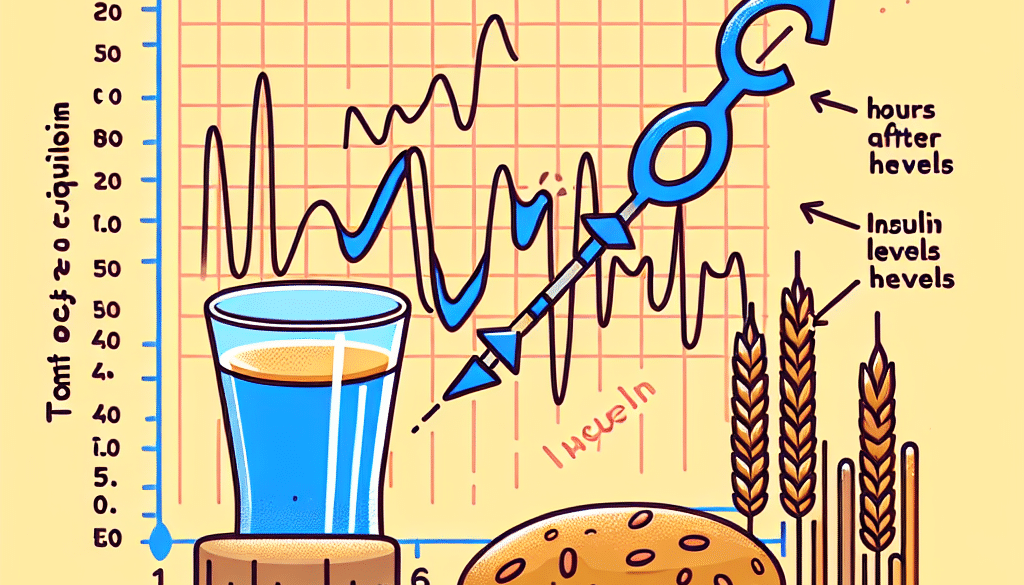Does Rye Spike Insulin?
-
Table of Contents
- Does Rye Spike Insulin? Understanding the Glycemic Impact of Rye
- The Glycemic Index and Insulin Response
- Rye’s Glycemic Profile
- Research on Rye and Insulin Response
- Case Studies and Examples
- Practical Tips for Including Rye in Your Diet
- Conclusion: Rye’s Role in Blood Sugar Management
- Discover ETprotein’s Protein Products
Does Rye Spike Insulin? Understanding the Glycemic Impact of Rye

When it comes to managing blood sugar levels, the type of carbohydrates we consume is crucial. Rye, a whole grain similar to wheat, is often considered a healthier alternative to white bread and other refined grains. However, for those concerned about insulin spikes and blood sugar management, the question remains: does rye spike insulin? This article delves into the glycemic impact of rye, supported by research, examples, and statistics, to provide valuable insights into its effects on insulin levels.
The Glycemic Index and Insulin Response
Before we examine rye’s impact on insulin, it’s important to understand the glycemic index (GI). The GI is a ranking system for carbohydrates based on their immediate effect on blood glucose levels. Carbohydrates that break down quickly during digestion have the highest GIs and cause marked fluctuations in blood sugar levels. Conversely, carbohydrates that break down slowly, releasing glucose gradually into the bloodstream, have a low GI.
Insulin is a hormone that helps cells absorb glucose from the bloodstream. Foods with a high GI can cause rapid spikes in blood sugar and insulin levels, which can be detrimental to health, especially for individuals with diabetes or insulin resistance.
Rye’s Glycemic Profile
Rye bread and other rye-based products have a relatively low to moderate GI, which means they tend to have a less dramatic effect on blood sugar and insulin levels compared to high-GI foods. The fiber content in rye is particularly beneficial, as it slows the absorption of carbohydrates, leading to a more gradual rise in blood sugar and insulin.
- Whole grain rye bread typically has a GI range of 50-70.
- Rye flakes have a GI of approximately 65.
- Pumpernickel bread, made from coarsely ground rye, has a GI around 50.
These values can vary based on the specific product and its preparation. It’s also worth noting that the glycemic response can be individual, influenced by factors such as a person’s metabolism, the combination of foods eaten, and the overall dietary pattern.
Research on Rye and Insulin Response
Several studies have investigated the effects of rye on insulin levels and glycemic control. For instance:
- A study published in the “American Journal of Clinical Nutrition” found that rye bread causes a lower insulin response compared to wheat bread.
- Research in the “Nutrition Journal” indicated that rye-based breakfasts reduced post-meal insulin demand compared to wheat-based breakfasts.
- A study in “The Journal of Nutrition” showed that whole grain rye has the potential to improve long-term blood sugar control.
These studies suggest that rye, particularly in its whole grain form, can be a beneficial part of a diet aimed at managing insulin levels and preventing blood sugar spikes.
Case Studies and Examples
Case studies have demonstrated the benefits of incorporating rye into the diets of individuals with concerns about blood sugar and insulin levels. For example, a case study involving patients with type 2 diabetes showed improved glycemic control when they switched from wheat bread to rye bread. Another example is the use of rye-based products in weight management programs, where the goal is to maintain stable insulin levels to promote fat loss and prevent hunger spikes.
Practical Tips for Including Rye in Your Diet
For those looking to include rye in their diet without causing insulin spikes, here are some practical tips:
- Choose whole grain rye products over refined ones to maximize fiber content.
- Pair rye with protein and healthy fats to further stabilize blood sugar levels.
- Be mindful of portion sizes, as overconsumption of any carbohydrate can lead to increased insulin levels.
- Consider the overall balance of your meals, including a variety of low-GI foods to maintain steady blood sugar.
Conclusion: Rye’s Role in Blood Sugar Management
In conclusion, rye does not typically cause significant insulin spikes, especially when consumed in its whole grain form. Its low to moderate GI makes it a suitable choice for those looking to manage their blood sugar levels. By incorporating rye mindfully into a balanced diet, individuals can enjoy its health benefits while minimizing the risk of unwanted insulin spikes.
Discover ETprotein’s Protein Products
If you’re looking to complement your diet with high-quality protein sources, consider ETprotein’s range of organic bulk vegan proteins. Their products, including organic rice protein and pea protein, offer a neutral taste and are non-GMO and allergen-free. These proteins can be a great addition to a diet focused on blood sugar management, as they provide essential amino acids without the carbohydrate content that could impact insulin levels.
About ETprotein:
ETprotein, a reputable protein and L-(+)-Ergothioneine (EGT) Chinese factory manufacturer and supplier, is renowned for producing, stocking, exporting, and delivering the highest quality organic bulk vegan proteins and L-(+)-Ergothioneine. They include Organic rice protein, clear rice protein, pea protein, clear pea protein, watermelon seed protein, pumpkin seed protein, sunflower seed protein, mung bean protein, peanut protein, and L-(+)-Ergothioneine EGT Pharmaceutical grade, L-(+)-Ergothioneine EGT food grade, L-(+)-Ergothioneine EGT cosmetic grade, L-(+)-Ergothioneine EGT reference grade and L-(+)-Ergothioneine EGT standard. Their offerings, characterized by a neutral taste, non-GMO, allergen-free attributes, with L-(+)-Ergothioneine purity over 98%, 99%, cater to a diverse range of industries. They serve nutraceutical, pharmaceutical, cosmeceutical, veterinary, as well as food and beverage finished product distributors, traders, and manufacturers across Europe, USA, Canada, Australia, Thailand, Japan, Korea, Brazil, and Chile, among others.
ETprotein specialization includes exporting and delivering tailor-made protein powder and finished nutritional supplements. Their extensive product range covers sectors like Food and Beverage, Sports Nutrition, Weight Management, Dietary Supplements, Health and Wellness Products, and Infant Formula, ensuring comprehensive solutions to meet all your protein needs.
As a trusted company by leading global food and beverage brands and Fortune 500 companies, ETprotein reinforces China’s reputation in the global arena. For more information or to sample their products, please contact them and email sales(at)ETprotein.com today.












